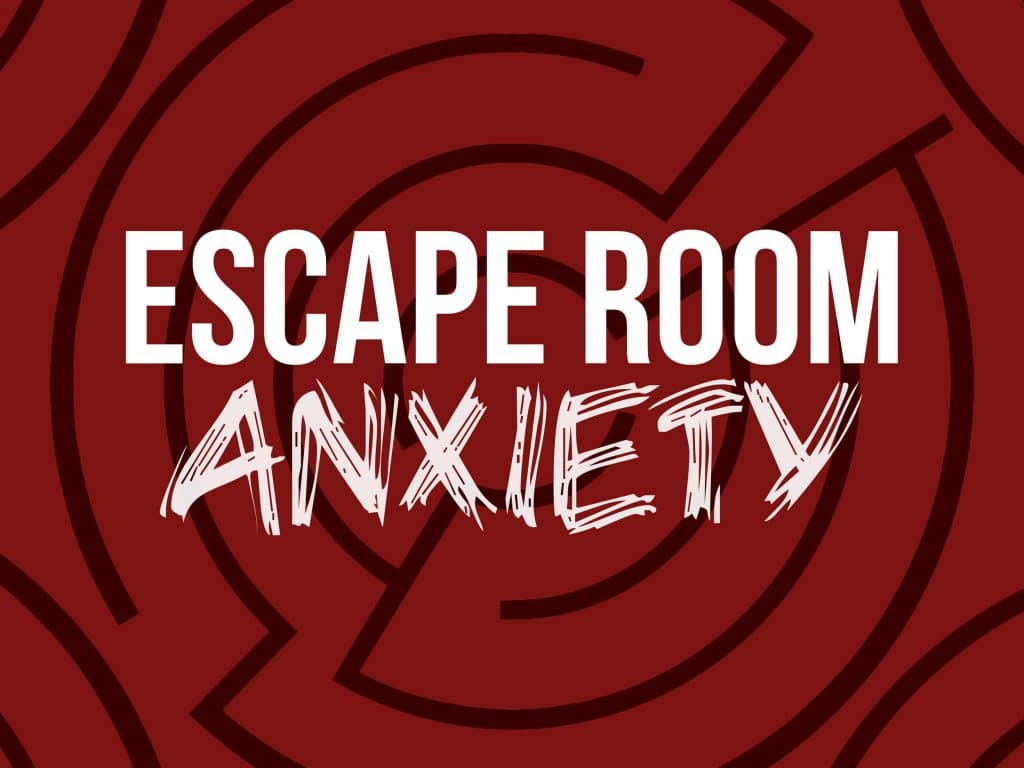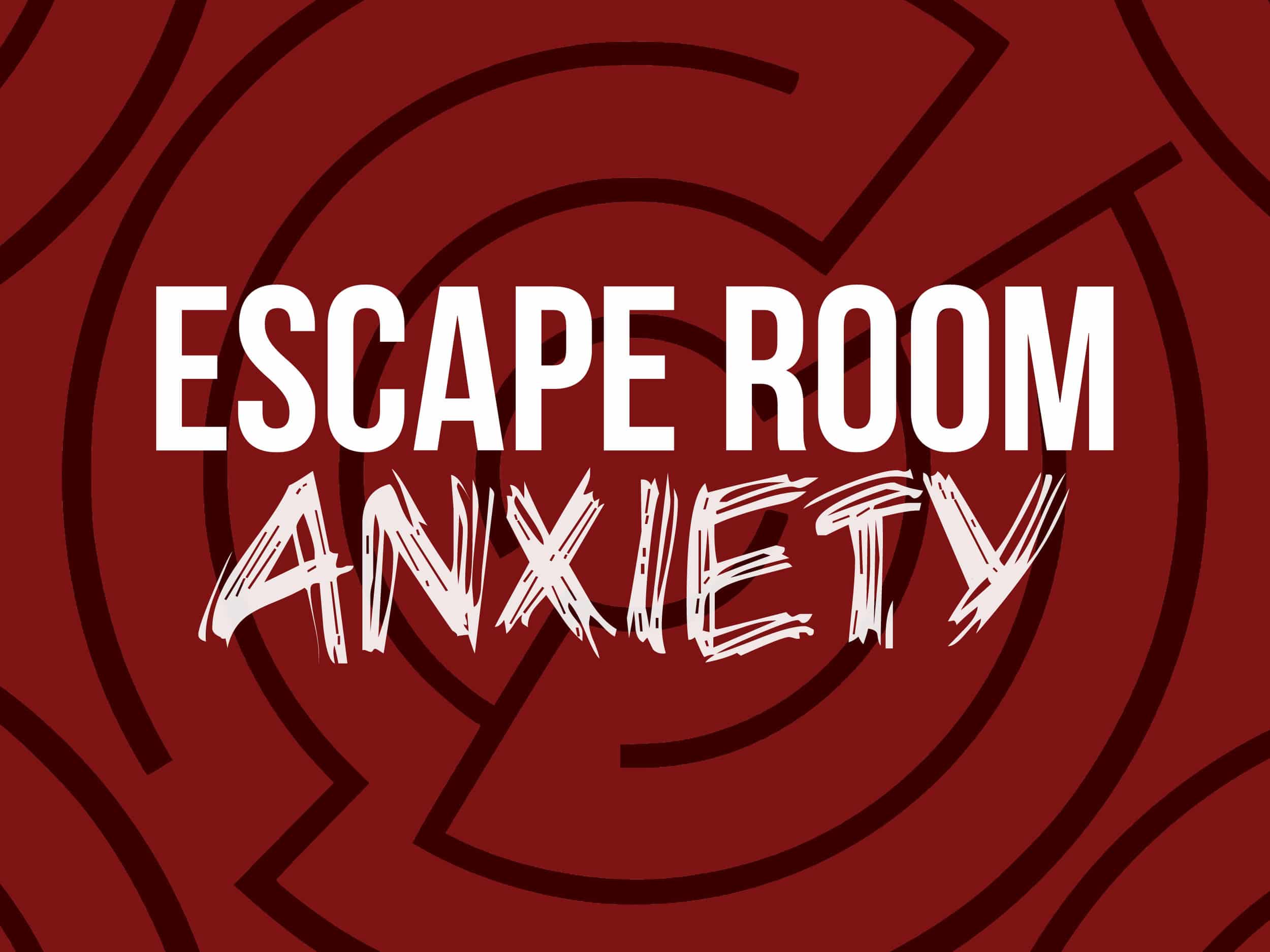
Escape rooms can trigger unwanted responses
Victoria Pujdak, The Vision Magazine Staff Writer
Graphic courtesy of Emily Artus.
A pair of eyes rapidly scanned over the slat , windowless wooden walls of a confined and stuffy room. Sweat permeated her brow as she nervously plucked at her cotton t-shirt. The four walls seemed to slowly shrink around her. Why had she let her friends convince her to come here?
Her first instinct was to bolt for the large oak door in the right corner of the room, but when she yanked on the brass handle, the door sat unmoved in its wooden frame. She was trapped and she had to get out. A white noise that sounded like arguing voices rang in her head as she tried to assess her situation. She heard a beeping noise overhead and her group let out a collective sigh.
Their hour was up and they were unsuccessful in finding a breakout route out of the local escape room, in a timely fashion. She let out a long, shuddered breath and plastered a weak grin on her damp countenance when her friends reminded her it was time to leave for the movie.
The human brain and psyche are a complex unit of intertwining emotions and chemical processes. When faced with internal or external stimulus the brain can respond in a variety of reactions causing the body to spring in to action or remain in a static position. So what happens when the brain is overcome with the anxiety and fear that comes from being trapped?
Being trapped can cause some levels of anxiety and slowly digress into fear to specific psyches. Anxiety can be simply described as an often vague and uncomfortable emotion complied of apprehension and distress caused when the brain has received too much information in one moment or not enough details, leaving one in a state of helplessness.
After anxiety, the next stage is fear, which is an intense emotion stimulated by a clear and present threat or the mere thought of jeopardy. Certain individuals are more prone to anxiety and fear. According to Overcoming.com.uk, anxiety tendencies can stem from genetics and lack of support groups. Some psychologists also believe people who have biased personalities are more susceptible to stress and anxiety.
When the body is faced with a seemingly perilous situation, fear and anxiety strike at the body’s sympathetic nervous system, which works to prepare an organism for mental or physical activity. When a body receives negative waves from an external stressor, an orchestra of bronchi (the main passageways to the lungs) dilate their pupils and accelerate heart rate sending a signal to the brain to initiate a “Flight or Fight response.”
The “Flight or fight response” is an internal behavior housed in the human brain. When the body or mind is jeopardy, it responds by fleeing or remaining to fight or rationalize the oncoming danger or stress.
Escape rooms and other confined situations can cause fear and anxiety to the human brain. It is good to know ahead of time your susceptibility to stress and fear before entering the room. Some will have the desire to flee while others will remain calm and work out the problem. So the real question is “Are you game?

